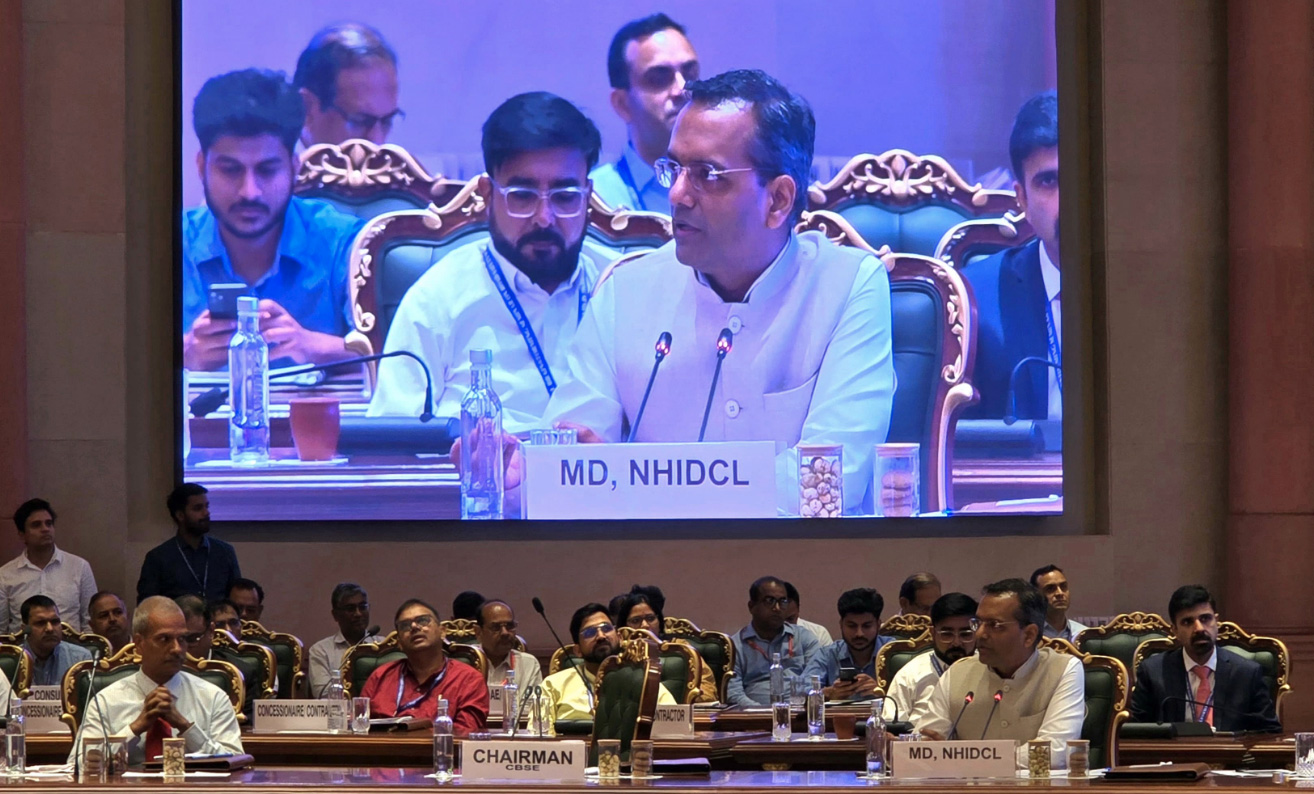New Delhi: Dr. Krishan Kumar, Managing Director of the National Highways & Infrastructure Development Corporation Ltd. (NHIDCL), spearheaded a significant panel discussion today focusing on the critical role of ‘Behavioural Change & Effective Communication’ in bolstering road safety across the nation.
The session, held here as part of ongoing initiatives aligned with the #NationalRoadSafetyPolicy2025 and #SadakSuraksha campaign, emphasized the need for transformative awareness through well-crafted communication strategies and the sensitization of the masses using relatable messaging.
The panel, comprising experts in communication, behavioural science, and road safety, delved into the intricacies of influencing public behaviour towards safer road practices. Dr. Kumar, in his opening remarks, underscored the importance of moving beyond traditional awareness campaigns. He stressed that true progress in reducing road accidents hinges on deeply ingrained behavioural shifts, which can only be achieved through consistent, impactful, and easily understandable communication.
“Simply stating the rules is not enough,” Dr. Kumar asserted. “We need to connect with people on an emotional level, using narratives and examples that resonate with their daily lives. Our communication must be empathetic and highlight the personal and societal benefits of adhering to road safety norms.”
The discussion explored various aspects of effective communication, including the strategic use of different media platforms, the importance of culturally sensitive messaging, and the role of community engagement in fostering a sense of collective responsibility towards road safety. Panellists highlighted the need to tailor communication strategies to specific target audiences, considering factors such as age, demographics, and local contexts.
Key takeaways from the session included the necessity of:
- Relatable Messaging: Crafting messages that connect with the everyday experiences and concerns of the public.
- Consistent Reinforcement: Maintaining a continuous flow of information through various channels to keep road safety top-of-mind.
- Positive Framing: Emphasizing the benefits of safe behaviour rather than solely focusing on the negative consequences of violations.
- Community Involvement: Engaging local leaders, influencers, and community groups to amplify road safety messages.
- Data-Driven Communication: Utilizing accident data and behavioural insights to inform and refine communication strategies for maximum impact.
Managing Director NHIDCL, Dr. Kumar concluded the session by reiterating NHIDCL’s commitment to actively promoting behavioural change through innovative and effective communication initiatives.
He emphasized that achieving the goals of the National Road Safety Policy 2025 requires a collaborative effort involving government agencies, civil society organizations, and every citizen. The insights gleaned from this panel discussion are expected to significantly contribute to the development of more impactful and life-saving road safety campaigns in the future.


